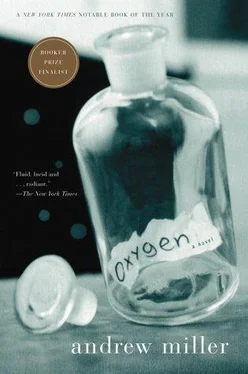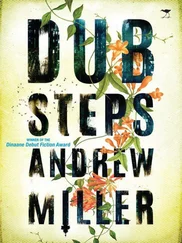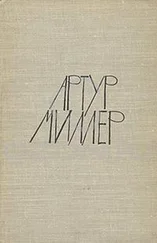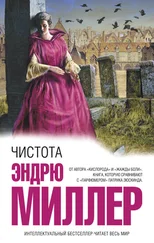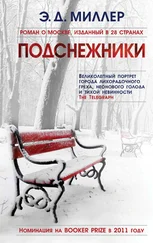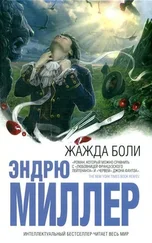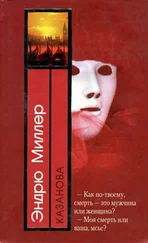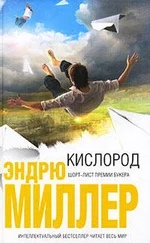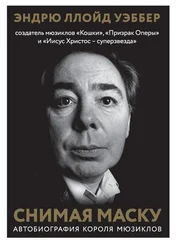‘The big day,’ said Larry.
Alec nodded. He was dressed in black chinos with a dark collarless shirt. He had his glasses on with the sunshade attachment clipped to the front.
‘Come to America,’ said Larry.
‘OK,’ said Alec.
‘I mean it.’
‘OK.’
‘Stick with family. You could learn to surf. Take yoga classes.’ He chuckled. ‘Ella would love it.’
‘And what would I do there?’
‘The same as here. I doubt you’d even need a green card. You should think about it.’
‘OK.’
‘Seriously.’
‘What about you?’ said Alec. ‘What’s to stop you coming here? You’re not doing the show any more.’
Larry shook his head. ‘I’ve got a couple of other projects cooking.’
‘What sort of projects?’
‘Anyway, I wouldn’t fit in here.’
‘You used to.’
‘I remember.’
‘You used to fit in perfectly.’
‘A thousand years ago.’
‘I thought things were difficult for you over there. I thought that was the point.’
Larry made a face. ‘I’ve thought about it once or twice. But it’s too late for all that. All that coming back shit. I’ve got a house out there. A family! And coming back now would be like saying I’d been wrong all along. That it had all been a mistake.’ He flicked his cigarette away. ‘America’s the only big idea I’ve ever had. If I stop believing in it it’s like I stop believing in happiness or adventure or fuck knows. Great cars, great sex. Love.’ He leaned across the table. ‘America’s my optimistic heart. Do you see?’
Alec nodded, but Larry reckoned he had heard no more than one word in three. There were changes in his brother, certain unsettling alterations that dated from that fuss between them in the kitchen. It wasn’t just the distractedness, the sense of him looking in all the time at some demanding secret; there was a new control, a self-discipline that seemed at times to verge upon the manic, but which was nonetheless somehow effective. The little-boy-lost look was gone, that air of helplessness and incipient panic that had been so obvious at Heathrow. What underlay these changes was hard to say, but the night before last, out under the stars for a smoke, trying to put his own thoughts in order, Larry had seen through the summerhouse window his brother in agitated debate – gesturing, grimacing, pressing his brow – all this despite his being utterly alone in there. A troubling sight (and a good deal more than he had wanted to see), for what question was it that needed such emphasis, such violent settlement?
He raised an arm and waved to Una, who was coming towards them in a dress the colour of the grass. ‘Guess what?’ said Larry. ‘Alec’s going to come and live in America.’
‘Is that so?’
‘He won’t go without you,’ said Larry.
She grinned, touched her hair. ‘What time are your guests coming?’ she asked.
‘Around three,’ said Alec. ‘Though there won’t be many.’ ‘Do you think Mum can stay down for long?’ asked Larry.
‘I’d say she’d be fine for an hour. I’m going to see her now. Will you bring her down when she’s ready?’
‘Call me,’ said Larry.
In Alice’s bedroom a bluebottle flew revolutions in the shaded air. Una opened the curtains and sat by the bed, then lifted one of Alice’s hands from the covers and cradled it between her own. Though Alice had survived the fall, the shock of it had snapped something in her that would not show up on X-rays or CAT scans. A thread, or a delicate valve like the ones inside the old TV sets, something that could not be repaired and which had left her like this, struggling to live, struggling to die, waiting for the next fall, the next seizure, the next small-hours crisis.
The day after the accident, when at last she had been able to speak and make some sense, she had said, ‘Death’s taking me a piece at a time,’ and she had wept so piteously Una had had to turn away, afraid of what the words moved in her, the sorrow that burned behind her own eyes. Here, with the Valentines, she had strayed across the line. She had dropped her guard and in the end she would pay the price for it, grieving on her own without the comfort of a family around her. It was a failure they had been warned against in training. Inappropriate emotion. It was unprofessional, and it didn’t really help anyone, didn’t make her a better nurse. But how were you supposed to control it? You couldn’t give the heart orders – thus far and no farther. It wasn’t human.
She squeezed Alice’s hand and folded down the sheets to check for signs of bedsores, discovering on her back – the coccyx – a patch of irritated skin, which she treated with the Granuflex. The whole puzzle of Alice’s skeleton was visible now. The long bones jutting against her skin, her eyes sunk into the sockets of her skull. She had taken no solids since the fall, so her body scavenged on itself, eking out another week or month with scraps of protein, lipids, a last swirl of glucose. Life, which a child could dab out with the pressure of her thumb, was also mystifyingly persistent, the flesh outliving the will, all pleasure, all usefulness, going on and on in the grip of some biochemical imperative, something fashioned right at the start, before we had bigger brains or better hands. Sheer blind tenacity.
She tucked her hair behind her ears and watched the bluebottle crawl across the face of the mirror on the chest of drawers. Comfort was all that mattered now. To find among the vials and bottles something useful, something to match Alice’s suffering without making her nauseous or terrifying her with hallucinations. What else? Light a candle for her? Say a prayer? She was out of practice. Hail Mary and all that. She hadn’t prayed since she was a girl in Derry, when the whole family used to kneel in the front room at the sound of the angelus bell on the television, and her father would recite the rosary. That was all behind her now, like the sea light and the banter and the checkpoints. She had a Buddha at home, one of those hollow brass ones, part household god, part paperweight, and sometimes she put flowers next to it, though she didn’t know much about Buddhism except it seemed a kind sort of religion, less bullying than most. What she did know about was nutrition, care planning, morbidity. Whatever it was you learned about the psychologies of grief and courage sitting through the last hours of forty, fifty people. But what it all actually meant (the slow destruction of a woman like Alice Valentine) she had no idea. She was twenty-seven, for Christ’s sake. She lived on her own in a small rented flat she didn’t much like, and two or three times a week she took Temazepam to stop the dead visiting her in her sleep.
Kirsty came up to help with the dressing (the young women liked each other and worked well together), and though there was very little from among her clothes that Alice could still wear, they found a summer frock of blue-and-white cotton, and a woollen shawl, cream-coloured, to wrap about her shoulders. As they dressed her, gently rolling her between their hands, Alice dozed and muttered, and on waking seemed surprised to find herself transformed, her hair brushed out, the big white trainers on her feet. Kirsty kissed her cheek and ran downstairs to call for Larry.
‘You don’t have to go out, Alice,’ said Una. ‘Not if you’d rather stay up here.’
‘Out?’ said Alice, her eyes widening. ‘Where?’
‘Into the garden. For the party.’
Alice nodded. ‘Who’s in charge?’ she asked.
‘Well. Would you like Alec and Larry to be in charge?’ ‘Write,’ said Alice, holding out a hand.
Una took the felt-tip she used for her notes, tried it first on her own skin, and then wrote across Alice’s palm: Alec and Larry in charge.
Читать дальше
